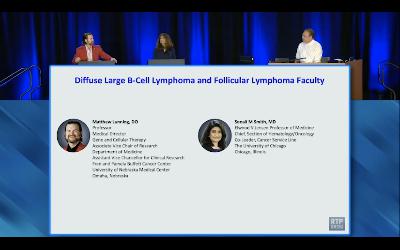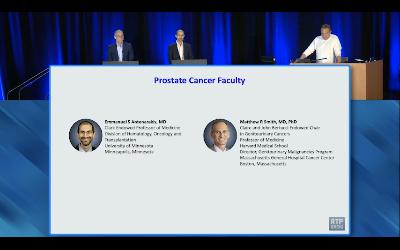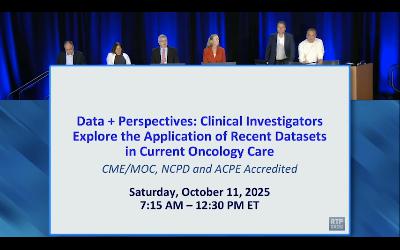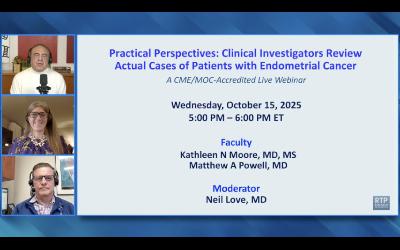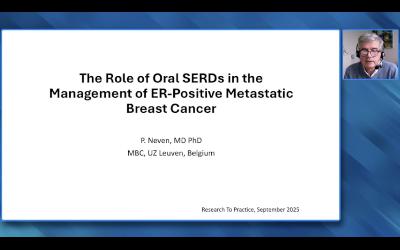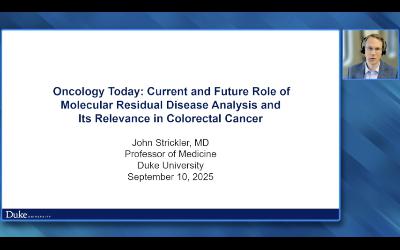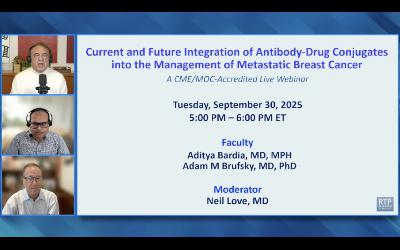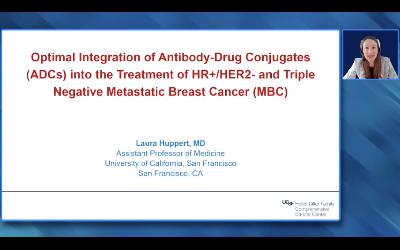ER-Positive Metastatic Breast Cancer — A Roundtable Discussion on the Current and Future Role of Oral SERDs
Update: 2025-11-14
Description
Featuring slide presentations and related discussion from Prof Francois-Clement Bidard, Dr Hope S Rugo, Dr Rebecca Shatsky and Dr Seth Wander, including the following topics:
- Optimal approach to biomarker testing for patients with ER-positive metastatic breast cancer (mBC) (0:00 )
- Case: A woman in her early 70s with recurrent ER-positive, HER2-negative mBC receives elacestrant (15:15 )
- Case: A woman in her early 60s with ER-positive, HER2-low, PIK3CA-mutated mBC receives inavolisib-based therapy and experiences no disease progression for 24 months (18:02 )
- Role of oral selective estrogen receptor degrader (SERD) monotherapy in the treatment of progressive ER-positive, HER2-negative mBC (26:26 )
- Case: A woman in her mid 60s with recurrent HR-positive, HER2-negative mBC receives elacestrant (44:12 )
- Case: A woman in her early 50s with recurrent HR-positive, HER2-negative, PIK3CA-mutant mBC receives capivasertib and fulvestrant (45:33 )
- Potential novel applications of oral SERDs in the management of ER-positive, HER2-negative breast cancer (51:25 )
- Case: A woman in her mid 50s with recurrent ER-positive, HER2-negative, PIK3CA-mutated mBC experiences disease progression 18 months after starting first-line letrozole and ribociclib (1:03:46 )
- Case: A woman in her mid 50s with ER-positive, HER2-negative breast cancer undergoes serial ctDNA monitoring during first-line therapy (1:06:54 )
- Tolerability and other practical considerations with oral SERDs (1:14:30 )
- Case: A woman in her early 60s with recurrent HR-positive, HER2-negative mBC receives elacestrant (1:33:26 )
- Case: A woman in her early 60s with recurrent HR-positive, HER2-negative mBC receives elacestrant (1:37:38 )
Comments
In Channel



